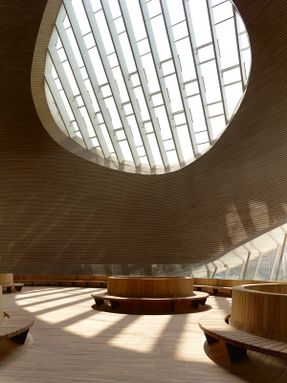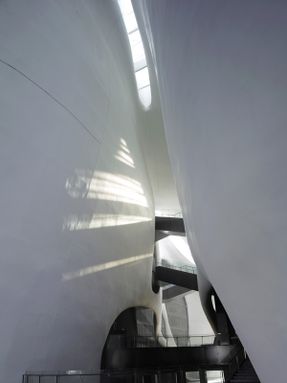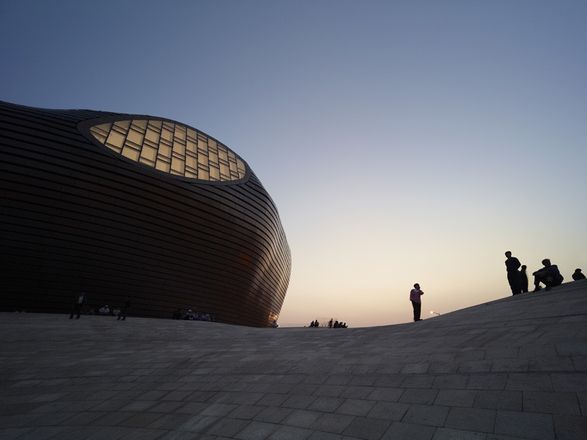
Ordos Art & City Museum
ARCHITECTS
MAD Architects
CONSTRUCTION CONTRACTOR
Huhehaote construction Co., Ltd
DIRECTORS
Ma Yansong, Yosuke Hayano, Dang Qun
CLIENT
Municipality of Ordos
ASSOCIATE ENGINEERS
China Institute of Building Standard Design & Research
MECHANICAL ENGINEER
The Institute of Shanxi Architectural Design and Research
DESIGN TEAM
Shang Li, Andrew C. Bryant, Howard Jiho Kim, Matthias Helmreich, Linda Stannieder, Zheng Tao, Qin Lichao, , Sun Jieming, Yin Zhao, Du Zhijian, Yuan Zhongwei, Yuan Ta, Xie Xinyu, Liu Weiwei, Felipe Escudero, Sophia Tang, Diego Perez, Art Terry, Jtravis B Russett, Dustin Harris
PHOTOGRAPHS
SHU He
BUILDING HEIGHT
40 m
SITE AREA
27,760 sqm
AREA
41.227 m2
YEAR
2011
LOCATION
Ordos, Inner Mongolia, China
CATEGORY
Museum
Text description provided by architect.
Conceived as a reaction to the strict geometry of the master plan, the Art & City museum by MAD Architects is an amorphous building that seems like it has landed on the earth.
Its surrounding dunes, monumental stairways and belvederes have been generated from the empty Gobi desert which was here just a few years ago.
Located in the new city center of Ordos, the space itself is deeply rooted into the local culture.
Although it has contemporary presence, there is a chance to think over what the term “local culture” means, where it is rooted and what it can become in the future.
The structure is wrapped in polished metal louvers to reflect and dissolve the planned surroundings.
This results in a solid, windowless, building firmly anchored to the ground. This shell encloses a interior totally separate from the urban reality.
On entering, the logic changes and the spaces begin to buzz: heights are disproportionate, holes buckle upwards, surfaces creep sinuously around, creating openings and interstices which tone down the effect of the sheer quantity of light streaming down to the floor.
The central lobby welcomes and guides visitors into the canyon-like public corridor. People can come in to visit the exhibits, or walk through the canyon and out the other side. In this space, natural light comes in through skylights and highlights the bridges that connect the galleries.
The light also blurs any internal boundaries; it creates an illusion that’s accentuated by the organic form of the bridges. As for the gallery spaces, we didn’t know what kind of exhibitions they would hold, so they are designed to be flexible.














